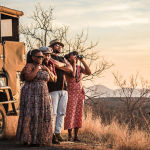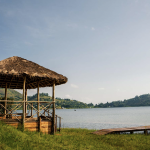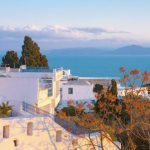UNIQUE ETHIOPIA: IMPORTANT FESTIVALS
Located in the Horn of Africa Ethiopia is known for its rich history and cultural heritage, as well as its diverse landscape that includes highlands, deserts, and tropical forests. The country is home to several UNESCO World Heritage sites, including the rock-hewn churches of Lalibela and the Simien National Park. Ethiopia is also the birthplace of coffee and is known for its unique cuisine and traditional music.
Another unique facet of Ethiopia is the various festivals that are celebrated throughout the year. These celebrations are not only colourful and high-spirited but can also last for several days.
GENNA (ETHIOPIAN CHRISTMAS)
In Ethiopia, Christmas is called “Ledet” or “Genna” which comes from the word Gennana meaning imminent about the coming of the Lord as well as the freeing of mankind from sin. It falls on December 29 Ethiopian time (Julian calendar), which is January 7 on the Gregorian calendar (the one used by most countries in the world). During this day, people dress up in their finest to celebrate.
Genna is celebrated after 43 days of fasting known as Tsome Gehad (advent), which is practiced to cleanse the body and soul in preparation for the day of the birth of Christ. This pensive fasting period is required of the clergy and is known as the fast of the prophets.
On Genna, the festivities begin with a procession at 6 AM and then people gather in churches for a 3-hour worship service. After the mass, people go home to break the fast with drinks and traditional dishes such as Doro Wat and Injera, a spicy chicken stew eaten with the sourdough pancake-like bread.
Often celebrated quietly with groups of friends and family, gift giving usually involves small gifts exchanged amongst each other. The joy of giving and sharing extends beyond religious beliefs. Spreading the spirit of peace on earth and goodwill to all mankind throughout the world.
TIMKET
Two weeks after Genna, Timket is celebrated. It marks Christ’s baptism by St. John in the Jordan River and is considered the most colorful event of the year. Timket falls on January 11 on the Ethiopian calendar (January 19 on the Gregorian calendar).
The festivities begin on the Eve of Timket with colorful processions and ceremonies ending on the 12th January (20th January Gregorian calendar). A myriad of traditional dishes are prepared, the customary beverages Tella and Tej are brewed and a special bread is baked called “Ambasha”. Sheep are also slaughtered to mark this grand three-day celebration.
ENKUTATASH
September 11 is both New Year’s Day and the feast of St John the Baptist. The day is called Kiddus Yohanes or Enkutatash which means the “gift of jewels.” When the famous Queen of Sheba returned from her journey to visit King Solomon in Jerusalem, her chiefs welcomed her back by replenishing her treasury with enku or jewels. As this day coincides with the end of the season of heavy rains and the beginning of spring, the spring festival has been celebrated since these early times — dancing and singing can be heard at every village in the countryside and people joyfully celebrate not just the wildflowers that fill the highlands or the religious celebration composed of three days of prayers, psalms, hymns, and massive colorful processions, but also renewed life. To witness the largest and most astounding Enkuntatash celebration, most people go to Raguel Church, which sits atop Entoto Mountain.
FASIKA
Fasika, Ethiopian Orthodox Christian Easter, is celebrated after 55 days severe lent fasting during which Orthodox Tewahedo Christians do not eat meat and dairy products for the whole 55 days. The only food they can eat is vegetarian meals like ground split peas, lentils, grains, fruits, bread, and injera. On the eve of Easter, people go to church, bringing candles to light up for the very colorful Easter service. Addis Ababa, Axum, Lalibela, and Gondar are the sites of the 4 biggest pilgrimages for Orthodox Easter where celebrations are large and visitors can get the most authentic understanding of the holiday. In fact, a majority of the 800,000 annual international visitors of Ethiopia come for Fasika.
MESKEL
A two-day feast celebrated starting in September 26th, marking the finding of the True Cross in the early fourth century. During this time, yellow daisy-like flowers (called meskel) bloom all over he hills surrounding Addis Ababa. People head to Meskel Squaare to celebrate, and bishops and civic leaders led the festivities. After mass is the breaking of the feast which is celebrated by eating injera which is a flatbread considered to be Ethiopia’s national dish.
HIDAR TSION
Attended by tens of thousands of people from different parts of the world, Hidar Tison is a celebration in commemoration of Mary, associated with the presence of the Ark of the Covenant in Axum, the “sanctified city of the Ethiopians.” During this day, priests chant church music and beating drums can be heard, drawing tons of people to gather and celebrate the festival.
Used with permission from: www. absoluteethiopia.com
Originally posted: March 2019











